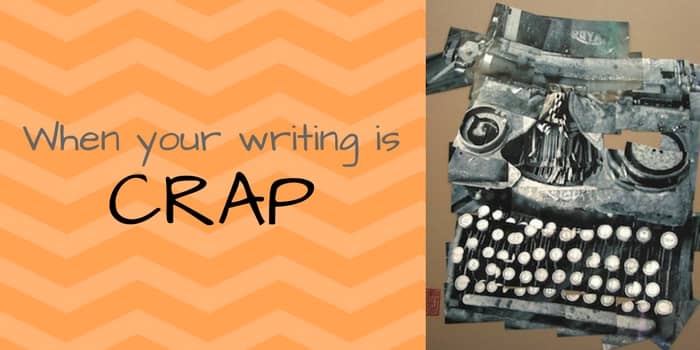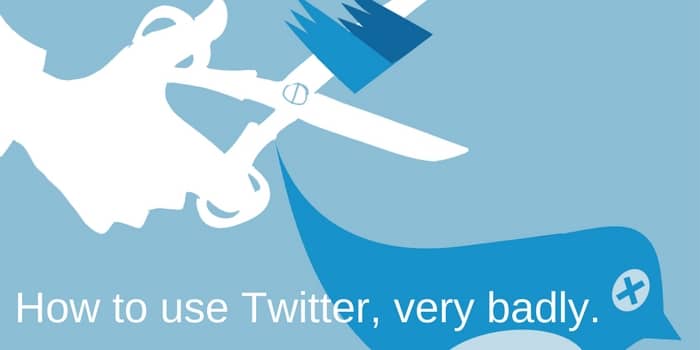
Writing can be frustrating
While there is always doubt in a writer’s mind, there comes a day when you just know what you have written is not working or that it is simply rubbish. I have just had this day and have decided to trash a project I have been working on now for a few months.
There is always the option of cutting, pruning, trimming, re-working or savagely editing, but sometimes the best option is to go back to a blank page and start all over again with a brand new idea. Although a painful and seemingly wasteful decision to make, there does come a time to admit that what you have written is crap.
This is the third time it has happened to me, and it prompted me to think about the reasons why it happens. Lack of motivation, a poor idea, weak characters or simply a lousy plot are probably common elements, but these can usually be fixed in one way or another. What I believe happened is that I just didn’t attach myself to the main characters and failed to have an underlying message I wanted to get across. With this most recent admission of failure, I have to say that I completely lost my way, and although thinking I was following my plot outline, I was in actual fact wandering off in all directions.
The other probability is that the story was a continuation from one of my previous books and I fell into the trap of trying to milk an already exploited idea. I found myself writing for the sake of writing and although producing words, I wasn’t producing a story. Nor was I enjoying myself. Whatever the reason, I just knew it was time to stop.
While all writers need the reassurance of an independent eye, there are times when in your own heart you know you have failed. So back to the drawing board or me. Now, where’s that delete button?




Hi Derek. I know what you mean. Writing is really about getting passion on the page. And then a lot of hard work of course. The easiest, best stories I’ve written were ones with themes I was passionate about. They’re the ones that almost write themselves. But we learn from the negative as well. Huggs. : )
It’s sort’ve like getting three months into a new relationship and figuring out the fire simply isn’t there, huh? Been there myself. What really bugs me is when I have an idea but can’t beat it into anything I can run with.
Like this killer opening sentence I woke up with sometime last year (no, I’m not telling what it is) that I have never been able to develop beyond the first page. I know there’s a story there but I simply can’t thrash it out. I’m keeping it to myself, though, in case the rest of it comes to me someday. Meanwhile I write other things. That’s what we do.
Boy, do I get this! I have written sections of a novel where all along I didn’t jive with it. But I kept plugging away. Then, my husband read it and though he couldn’t say why, he told me it didn’t work. Naturally, I got all huffy about it, but finally admitted to myself that I too never thought it worked.
Deleting our work and starting anew is probably one of the hardest lessons. But it can open up the mind to incredible, superior writing.
Keep writing! And all best to you!
Derek,
Sometimes even the most talented people are not satisfied with their word. There are so many examples from the history. Maybe it’s better just leave it, not delete it, but leave it for the moment.
And do the same as you would do just deleting it completely. Why? Because even that “crap” was part of your life and you wrote it for some reason. Who knows, maybe one day it could become a good book.. We have a proverb something like “measure seven times before cutting”. The meaning is simple – you should be really sure to delete something. It’s the simplest thing to do. But to accept and leave it is better..
Good luck on your next ideas! I really enjoy your articles!
Remember my disaster a few months back mate – “Seventh Age”? What a dog that was.
With the anthology I’m currently working on, I eat, sleep and breath the characters. Don’t worry. Like me you will soon start writing that must read story again. :)
Derek, As a writer, I’m sure you’ll understand when I say, “shit happens”. Carry on. :)
Great post! It’s comforting to hear other writers saying they do this too, even though logically I know it must happen all the time, it’s still nice to hear it. And its important to remember it isnt wrong, it’s all part of the process, and deleting it doesnt mean the writing of it wasnt worthwhile.
I’ve also learned recently how awful it is to put a piece out there that you just dont believe in. Even if someone wants to publish it, if your heart isnt in there somewhere, you’ll probably regret it. Funnily enough, it was also the first story I’ve been paid for, so…. how whorey do I feel now! -_-
haha!
One benefit is that you quickly recognized it wasn’t the quality writing you want to represent you as an author. You can bash yourself all day, but simply consider it an exercise in self-improvement – maybe an exhausting exercise – but one that pushes you to be better.
All the best,
Glenn
I mostly write poetry, i.e., I jot down a string of thought as is and then see what I came up with. For a long time, I had notebooks full of poems, and I thought I could go back and edit each one. But one particular poem, one that was complete but not compelling, made me realize that…not everything *can* be edited. Some pieces just need to be scrapped because something inexorable about it isn’t good enough. So, essentially, I agree with your post.
Thank you all for your comments. I have taken heart from a few of you and recovered the text in question. One great advantage of having an Apple and Time Machine! However, it will have to sit for some time in the pending file, with a number of other unfortunates, before I revisit it again.
In the meantime, I await the arrival once again of that spark that ignites 100,000 words to flow like a river.
Don’t despair. I just trashed 22 months of work, over 185,000 words in script and 70,000 words cut during the process. Good news is I salvaged one tidbit for a long short story (13,500 words so far) and think I can salvage maybe 50,000 of the 185,000 and reboot the core concept in a more focuses fashion.
I write from an idea and let the plot take care of itself, so dead ends are a constant hazard. Self-induced even. But navigating that “mind field” has led to some unique stories. Maybe a tad too unique for editorial tastes. Whatever. I do what I do, and I’m happy with that.
22 months down the drain RA! Wow, I feel like I was lucky now. But at least you did a good salvage job with some of it.
Oh, thank goodness you managed to retrieve it, Derek. I think you are a wonderful writer so please don’t throw any of your work away. You might pick it up in six months time and turn it into a masterpiece. :)
When you’re chewing on life’s gristle, don’t worry. Just whistle.
My thought is that I wonder why you had this epiphany at this point? What threshold did you cross that made you think it was no longer a viable project? Or was it a cumulative dissatisfaction or was it just a really bad day? Good that you have kept the WIP, things might be clearer in time.
Cheers
Ruby
Love your Life of Brian quote Ruby!
But the nail in the coffin for my project was that it was confused and lacking direction. There was no message I was trying to get across so consequently it lacked any depth.
For me, the opposite of inspiration is improvisation! I have a tendency to come up with a good idea that has a good beginning and a clear end — but no middle. These stories tend to go on and on interminably as I flounder around trying to improvise something that will get the plot to its conclusion. I end up going off on tangents and inventing a lot of great but irrelevant characters and episodes. Finally, I throw in the towel and go on to something else. The story needs to be fully formed in its creator’s head and then it simply writes itself. Improvisation just doesn’t work for me! (I never delete these efforts, though, because parts of them are always worth consideration.)
So refreshing! A writer willing to admit he or she has written crap, is a real writer. Failure? Of course. All effort that achieves excellence ruthlessly carves away the failed and mediocre. When the foundation is crap, the whole house has to go. This is the hard truth of true craft. Early discovery is the best you can do sometimes.